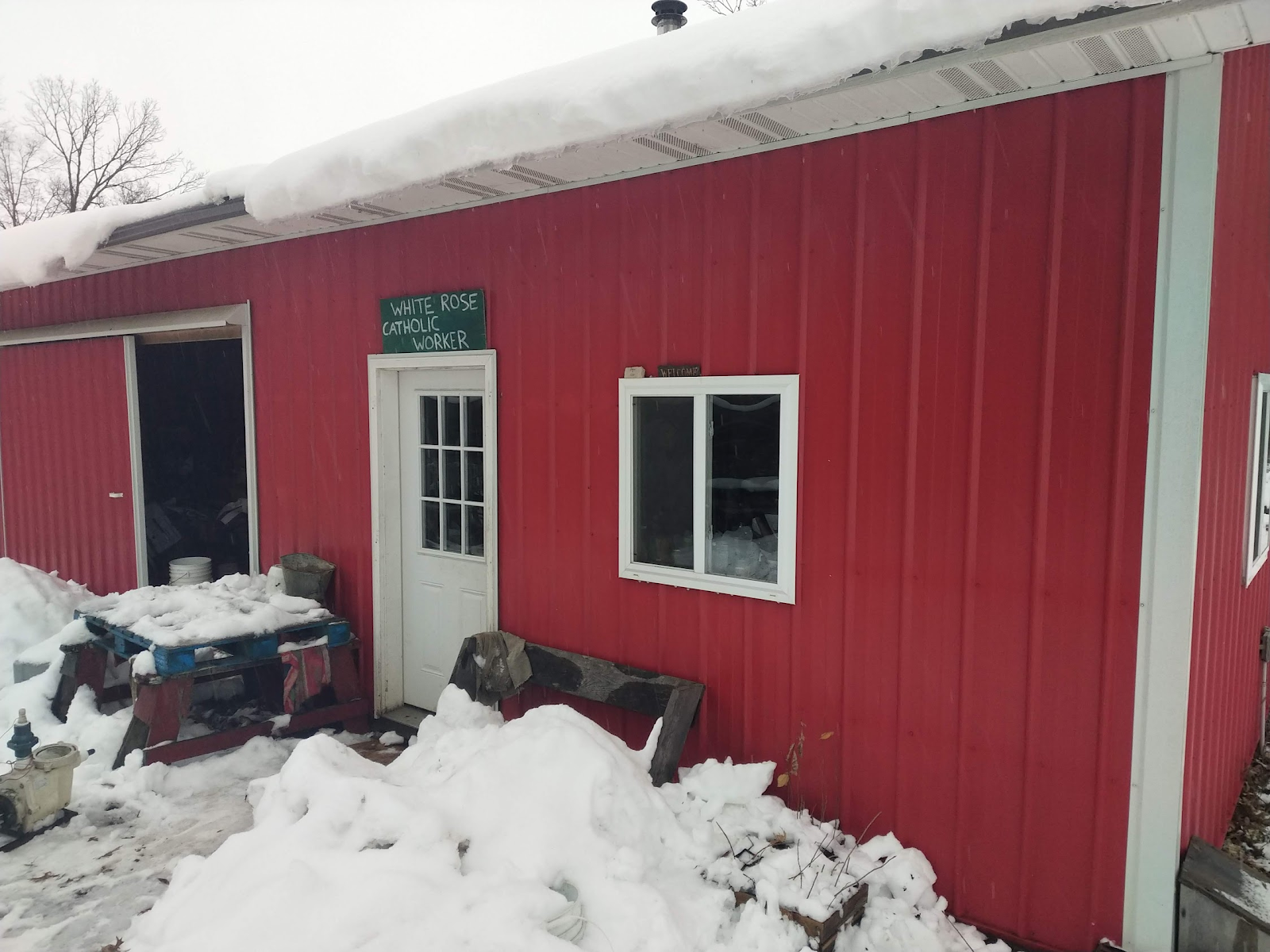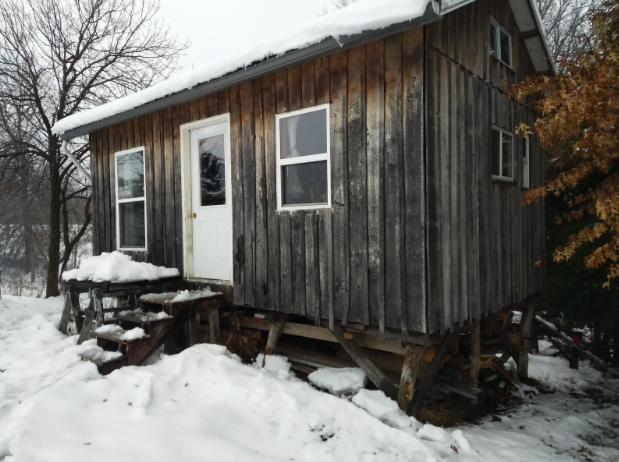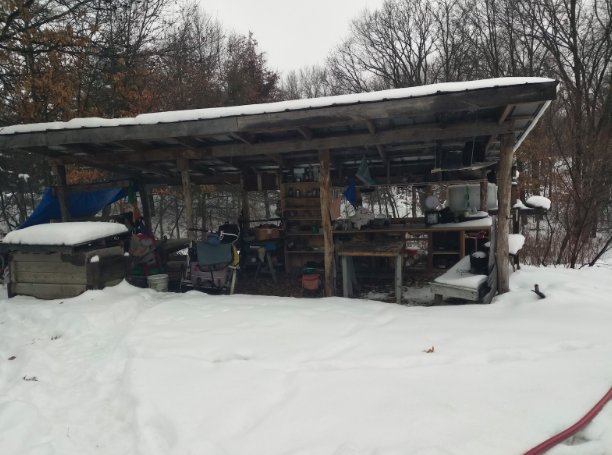Roots to Rural: White Rose Catholic Work Farm
Written by Julie Thomassen

Nestled between Kirksville and La Plata, Missouri, down gravel roads and through the woods, sits the White Rose Catholic Worker Farm. Run by John and Regina Bambrick-Rust, the farm opened in 2014 and continues to open its doors to visitors and volunteers to uphold its mission of outreach and sustainability.
The Catholic Worker Movement was launched in 1933. Founded by Dorothy Day and Peter Maurin, the movement began as a paper Day published under the same name, in order to spread the word of Catholic beliefs that Day and Maurin found essential for the betterment of society.
Day’s goal was to encourage social outreach and anti-violence practices through volunteer work, peaceful protests and a modest lifestyle. As the Catholic Worker Movement continues, each individual lives out these goals in different ways. John Bambrick-Rust says his call to the Catholic Worker lifestyle came when he lived and worked in Chicago, Illinois.
“I found the movement of following Jesus and interpreting the Bible’s word in this way very appealing,” John said. “Some of the elements I was attracted to included following faith by taking a vow of voluntary simplicity and poverty, to follow Jesus’s example by helping those in most need.”

After graduating from Marquette University in Milwaukee, Wisconsin, with a degree in social work, John moved to Chicago to enroll in the pastoral studies program at Loyola University. In 2009, John and two of his college friends began an urban Catholic Worker community. They rented a four bedroom apartment, using their extra room as a rent-free guest house. Their days were filled with sharing their philosophy, providing free meals for people in need, sustainability projects, and activism.
This diversity of work contrasts with the daily life of a social worker, something that appealed to John, who was not excited about working multiple cases at a time as a social worker;
“I liked the wide variety, unlike if I was a social worker, where I would burn out,”John said. “By helping one person at a time, there was more of a familial aspect.”

John and Regina’s own branch of the Catholic Worker Movement incorporates this familial aspect and expertly blends it with the purpose of creating change independently. Studying social work, John had experience working for nonprofit organizations and John felt that politics got in the way of doing what was necessary.
“The institution wouldn’t be up for it due to politics and money,” John said. “You can’t speak out against slavery, war or exploitation due to sponsoring and partnerships. I appreciate the Catholic Worker [Movement] because they say ‘Go for it. Live it out the way you want, imperfectly.’”
These frustrations with the current social outreach programs are a commonality between John and Day and led John to start White Rose.
“This was pretty raw land when we moved here,” John said. “The red workshop was built, but we insulated it and finished the inside. We built this cabin and outdoor kitchen.”
The White Rose has two shelters for visitors with beds in each of them. The smaller shelter is uninsulated and can only be used in the warmer months.
“We call it the stone hut building,” John said. “It has no stone in it, but our friends, Barbra and Dale Stone donated it.”
In 2019, the White Rose requires $20,000 a year to run. Much of their resources come from individual donors and churches. The Farm hosts about 400 visitors a year, some in the form of large volunteer groups and others as overnight guests.
One volunteer, Mollie Kurtz, heard about White Rose as a service opportunity through her sorority, Alpha Sigma Gamma, at Truman State University. This particular group of volunteers go to the White Rose every fall to help prepare for the winter. They help out the community by completing a number of small projects including gathering firewood and trimming trees.
“Another girl in my sorority and I were given the task of clearing the brush behind the new building because they were planning on using that space for another project in the future,” Kurtz said. “We were given a couple of axes and machetes, some basic instructions and we just went at it. I never thought in my life I would be hacking away at tall grass and bushes using a machete with my sister, but I did enjoy the excitement.”

While John and Regina continue their yearly routine at White Rose, they have a vision of growth.
“We want to be able to host more people,” John said. “We want to expand to make a bigger community space. We have an eighth of an acre garden where we plant trees every year such as apples, pears and berries. We have horses, chickens and sometimes bees. As the community grows, we want to expand our production with animals, maybe adding sheep or ducks. As time goes, we’ll be able to expand our food output.”
John and Regina Bambrick-Rust have built an open door, hospitality-centered community where everyone is welcome for a meal or a chat. If the ideals of the Catholic Worker Movement resonate with you, they are always accepting new volunteers. The Bambrick-Rusts have a editorializing mission that continues to develop over time.
The history of the Catholic Worker Farm Movement sheds light onto the ideals to which the individual participants remain faithful, even to this day. It is important to remember the roots of where our passions come from, just as John remembers Dorothy Day’s actions. This allows him to continue serving others, for he knows the history and importance of his daily work. But, just as it is important to look to the past for insight, it is just as important to look to the future for possibilities. John continues to pursue improvement and change, to better serve his community. Keeping in mind the past, John and Regina Bambrick-Rust will continue to serve the rural community of Adair county for years to come.
Listen to our podcast to hear more about this story!
